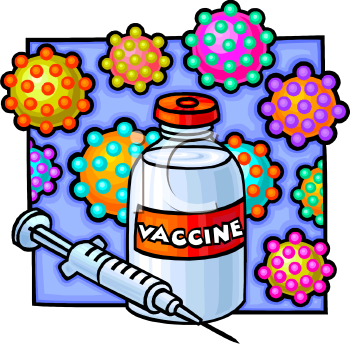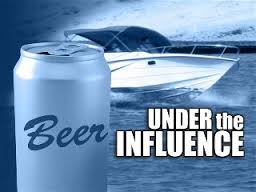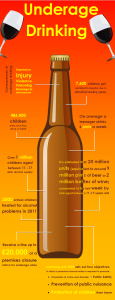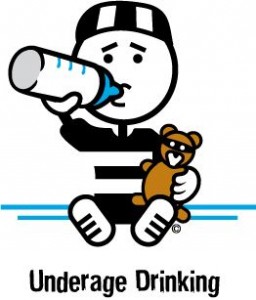Stoned Behind the Wheel
Thursday, June 2nd, 2022
Driving While Impaired (DWI) is not limited to just alcohol. Research suggests that in instances of driving while impaired due to the use of drugs, specifically marijuana appears to have an increased rate of involvement in motor vehicle accidents. Marijuana has been identified most frequently in the blood of drivers involved in accidents, including those that resulted in fatalities. However, it can be difficult to pinpoint whether marijuana impairment plays a direct role in car accidents because the drug can be detected in bodily fluids for days and sometimes as long as a few weeks, while the symptoms of intoxication typically only last a couple of hours.
Studies by the National Highway Traffic Safety Administration suggest that during the early months of 2020 and the rise of the COVID-19 pandemic, driving patterns and behaviors in the United States changed significantly. Among the drivers who remained on the roads, many engaged in riskier behavior, including failure to wear seatbelts, speeding, and driving while impaired by alcohol or other drugs. Another study on seriously or fatally injured car accident victims mentioned that five participating trauma centers reported almost two-thirds of drivers involved in an accident tested positive for at least one active drug, including alcohol, marijuana, and opioids between mid-March and mid-July of 2020.
Until recently, testing for drug impairment has been somewhat problematic due to limitations regarding drug-detecting technology and the lack of a consumption limit for the purposes of determining impairment. Now, a company by the name of “Gaize” has been in the process of developing a new technological device that can detect drug impairment among drivers in the United States. This new technology is the first roadside test for identifying marijuana impairment in drivers. The device consists of goggles, similar to those used in virtual reality, which detects involuntary micro-movements that transmit information about someone’s impairment or sobriety. Gaize conducts the same testing that is performed during a Standardized Field Sobriety Test and captures irrefutable video evidence of eye movement.
With marijuana use increasing dramatically in the United States, this new technology can decipher between heavy users, who may have a large amount of THC in their system but are sober, and infrequent users, who may have a very small amount of THC in their system but are extremely impaired.
If you choose to use impairing substances, be sure to do so responsibly by planning ahead for a sober driver, prevent your friends from getting behind the wheel if they are impaired.
Cheyenne M. Hensley, Legal Assistant


 Labor Day 2019 in Southeastern North Carolina is expected to be a busy and dangerous holiday. Being the holiday weekend that traditionally wraps up the summer season, travelers are anxious to get their last beach trip of the year started, and Star News reported yesterday that nearly one-third more fatal accidents occur on Labor Day weekend than a typical three-day period. In 2017 alone, 354 fatal car accidents occurred during the Labor Day weekend across the United States, leaving 374 people dead.
Labor Day 2019 in Southeastern North Carolina is expected to be a busy and dangerous holiday. Being the holiday weekend that traditionally wraps up the summer season, travelers are anxious to get their last beach trip of the year started, and Star News reported yesterday that nearly one-third more fatal accidents occur on Labor Day weekend than a typical three-day period. In 2017 alone, 354 fatal car accidents occurred during the Labor Day weekend across the United States, leaving 374 people dead. The Good Samaritan Law (now effective in 20 states) went into effect in North Carolina on April 9, 2013. The basis for the law is overdose prevention and survival – get help, CALL 911! Individuals who experience or witness an overdose can now seek help for the victim without being prosecuted for small amounts of drugs/drug paraphernalia, or alcohol for persons under 21 years old under N.C. Gen. Stat. § 18B-302.2 Medical treatment; limited immunity. Additionally, as of August 1, 2015, a person who seeks medical assistance for someone experiencing a drug overdose cannot be considered in violation of probation, condition of parole, or post-release. Likewise, the victim is protected. In order for the immunity to apply, however, the 911 caller must provide his or her name, and act in good faith when seeking assistance, and reasonably believe that he or she is the first person to call for help.
The Good Samaritan Law (now effective in 20 states) went into effect in North Carolina on April 9, 2013. The basis for the law is overdose prevention and survival – get help, CALL 911! Individuals who experience or witness an overdose can now seek help for the victim without being prosecuted for small amounts of drugs/drug paraphernalia, or alcohol for persons under 21 years old under N.C. Gen. Stat. § 18B-302.2 Medical treatment; limited immunity. Additionally, as of August 1, 2015, a person who seeks medical assistance for someone experiencing a drug overdose cannot be considered in violation of probation, condition of parole, or post-release. Likewise, the victim is protected. In order for the immunity to apply, however, the 911 caller must provide his or her name, and act in good faith when seeking assistance, and reasonably believe that he or she is the first person to call for help. The Wrightsville Beach 32nd annual North Carolina Holiday Flotilla is upon us! Many Wilmingtonians look forward to this water-based event every Thanksgiving weekend, as family and friends come together to eat, drink, and celebrate the holiday together. Whether you have a boat entered in the contest or will be watching from land, it may be beneficial for you to be up-to-date on North Carolina’s laws against Boating While Impaired, commonly referred to as “BUI” or “BWI”.
The Wrightsville Beach 32nd annual North Carolina Holiday Flotilla is upon us! Many Wilmingtonians look forward to this water-based event every Thanksgiving weekend, as family and friends come together to eat, drink, and celebrate the holiday together. Whether you have a boat entered in the contest or will be watching from land, it may be beneficial for you to be up-to-date on North Carolina’s laws against Boating While Impaired, commonly referred to as “BUI” or “BWI”. Summer is drawing to an end and college classes are set to resume in a few weeks. For many, the beginning of college is full of excitement, as students are no longer under the watchful eyes of their parents. Unfortunately, this lack of parental supervision tempts many into making decisions that they would not normally make. Often times, temptations such as underage drinking and/or using a fake ID cause bad situations for those caught breaking the law. When caught by law enforcement, reality sets in and can cause panic: How should you handle these charges? How will charges such as these affect my future? What will my parents or coach say? What is my next step?
Summer is drawing to an end and college classes are set to resume in a few weeks. For many, the beginning of college is full of excitement, as students are no longer under the watchful eyes of their parents. Unfortunately, this lack of parental supervision tempts many into making decisions that they would not normally make. Often times, temptations such as underage drinking and/or using a fake ID cause bad situations for those caught breaking the law. When caught by law enforcement, reality sets in and can cause panic: How should you handle these charges? How will charges such as these affect my future? What will my parents or coach say? What is my next step? Independence Day originally started as a celebration for the United States liberation from Great Britain. Over the years, culture has shifted, and this has become a day when people of all ages flock towards the beaches for relaxation and time with family and friends. Popular hangout spots, such as Masonboro Island, Mason’s Inlet, and the North End at Carolina Beach, have drawn crowds to Wilmington. Due to an increase in safety concerns in the area during popular holidays, such as Memorial Day and July the fourth, law enforcement has increased patrols and monitoring of the waterways, beaches, and surrounding areas.
Independence Day originally started as a celebration for the United States liberation from Great Britain. Over the years, culture has shifted, and this has become a day when people of all ages flock towards the beaches for relaxation and time with family and friends. Popular hangout spots, such as Masonboro Island, Mason’s Inlet, and the North End at Carolina Beach, have drawn crowds to Wilmington. Due to an increase in safety concerns in the area during popular holidays, such as Memorial Day and July the fourth, law enforcement has increased patrols and monitoring of the waterways, beaches, and surrounding areas.
 This weekend, April 8-12, 2015, is the 68th Annual North Carolina Azalea Festival in Wilmington, NC, New Hanover County. The Festival is an annual celebration of Wilmington’s gardens and culture. The festival covers five days of entertainment which includes: a parade, street fair, circus, concerts, pageantry, and all that is Southern. Beginning in 1948, the Festival has blossomed into an extended weekend celebration that attracts more than 250,000 people annually to the region including and surrounding New Hanover County, NC.
This weekend, April 8-12, 2015, is the 68th Annual North Carolina Azalea Festival in Wilmington, NC, New Hanover County. The Festival is an annual celebration of Wilmington’s gardens and culture. The festival covers five days of entertainment which includes: a parade, street fair, circus, concerts, pageantry, and all that is Southern. Beginning in 1948, the Festival has blossomed into an extended weekend celebration that attracts more than 250,000 people annually to the region including and surrounding New Hanover County, NC. A new policy in the Fifth Prosecutorial District that affects youths charged with underage drinking has gone into effect as of late November of 2014. This new policy will reshape the requirements for those who enter into a deferred prosecution agreement for an underage drinking charge. The goal of this new program is to help young offenders by teaching them the risks and consequences of underage alcohol consumption as well as avoiding a permanent mark on their criminal record. This program will only be offered to first time offenders that have not previously been convicted of any drug or alcohol crimes.
A new policy in the Fifth Prosecutorial District that affects youths charged with underage drinking has gone into effect as of late November of 2014. This new policy will reshape the requirements for those who enter into a deferred prosecution agreement for an underage drinking charge. The goal of this new program is to help young offenders by teaching them the risks and consequences of underage alcohol consumption as well as avoiding a permanent mark on their criminal record. This program will only be offered to first time offenders that have not previously been convicted of any drug or alcohol crimes.